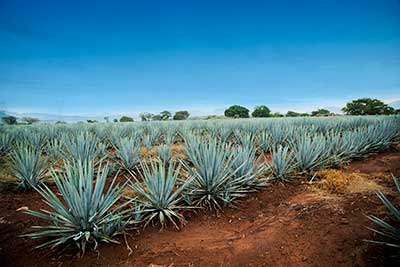Growing horticulture in Central Australia

The Department of Industry, Tourism and Trade is supporting the growth and diversification of horticulture in Central Australia through a number of measures.
Late last year, the agave plants to be used in an Australian Government funded and Northern Territory (NT) Government supported agave trial were delivered, ready for distribution to growers taking part in the project. It is hoped that 5 to 10 farms in the Central Australian and Katherine regions will take part in the project which will see 500 agave plants established, including at the department research farms.
The research will provide more information about the varieties of agave that will grow well in the NT over a 6 month period and give an indication around yield and profitability of the multiuse plant in the region.
As part of a focus on the region, the department is continuing its long term support of the Australian date industry. This is being done through ongoing maintenance of the germplasm collection at the Arid Zone Research Institute (AZRI) which is the biggest in the southern hemisphere.
The Plant Industries group is also collaborating on an AgriFutures Australia project to develop a research, development and communication strategy for the nation’s date industry. This project is being led by the Australian Date Growers Association, with additional support from the department and Victoria’s Sunraysia Institute of TAFE.
To help coordinate these trials and for the growing and increasingly diversified horticulture industry in Central Australia, the team is progressing recruitment for a senior research horticulturalist. As part of the position, the new team member will help develop, initiative, carry out and manage research, development and extension projects to support the productivity and sustainability of plant industries in the region for the next four years.
The department is working with local growers and the broader industry to establish opportunities to diversify agricultural sectors by harnessing the Territory’s competitive advantages, in line with recommendations from the Territory Economic Reconstruction Commission (TERC) around agribusiness. TERC’s final report suggested leveraging the Territory’s strong agricultural sector to develop new agribusiness opportunities, with agribusiness identified as one of the sectors that will contribute the most to the Territory’s economic growth. The potential for growth in food and fibre production in the region can attract increased private investment, create long-term, sustainable employment and diversify the Territory’s suite of exports.
To find out more about the Plant Industries work being done in Central Australia, read the plant industries development page.
